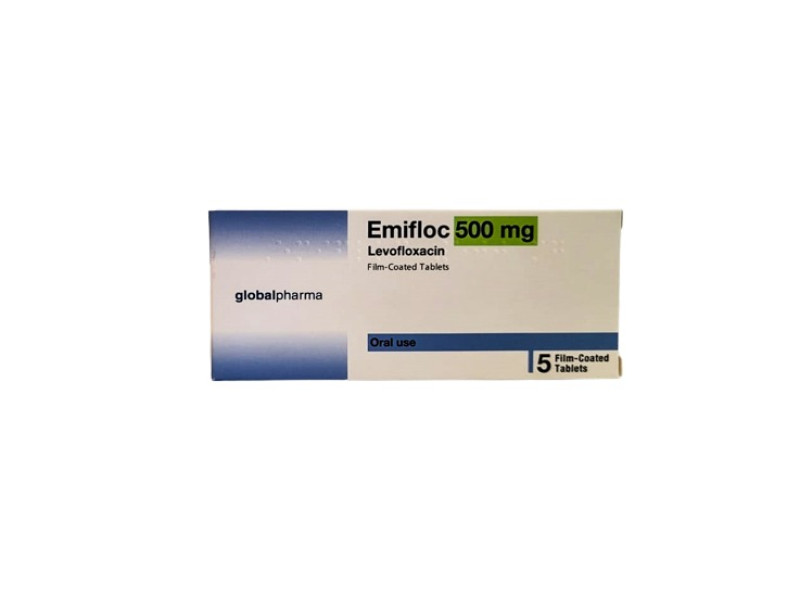
- Model: 00016188
- SKU: 6291103730510
What is Levofloxacin used for Levofloxacin is an antibiotic that belongs to a class of medicines called “fluoroquinolones”.
It is indicated in the treatment of adult patients with bacterial infections in the following body parts:
• Lungs and bronchi
• Urinary tract (bladder and kidneys)
• Sinuses
• Prostate
• Skin and soft tissues
Do not take Levofloxacin If you are allergic to Levofloxacin, other quinolones, or any of the ingredients in this medicine.
Tell your doctor about the allergy and what signs you had.
Warnings and Precautions
•Talk to your doctor or pharmacist if you develop allergic reactions such as shortness of breath, skin rash, swelling of the face or neck, decreased blood pressure and dizziness.
• This medication may increase the risk of tendinitis (inflammation of the cords that attach muscle to bone). Contact your doctor in case of muscle or joint pain and stiffness. Make sure to tell your doctor if you are 60 years of age or older, are taking steroids, or have kidney, heart or lung transplants.
• This medication may cause blood problems such as thrombocytopenia (low platelet count, platelets are responsible for wound healing and stopping bleeding) and other blood problems. Make sure to monitor for bleeding, delayed wound healing, easy bruising, feeling tired or dizzy, fever and looking pale.
• This medication may cause liver problems. Contact your doctor immediately if you experience liver problem side effects such as pale skin, yellow eyes, white stools, dark urine, fatigue, swelling of abdomen.
• This medication may cause confusion, anxiety, convulsions, depression and difficulty sleeping after the first dose. • Use of this medication may be linked to Clostridium Difficile diarrhea (a bacterial infection in the gut that causes diarrhea). Make sure to tell your doctor if you experience diarrhea.
• This medication may cause tingling and numbness in your peripheries. If this happens, make sure to tell your doctor in order to prevent irreversible damage to the nerves.
• Make sure to tell your doctor about other medications that you are taking to prevent QT prolongation (a heart problem that causes a type of irregular rhythm) from happening.
• Make sure to tell your doctor if you have low potassium levels in your blood, known QT prolongation or other heart problems. Possible side effects of Levofloxacin Possible side effects of Levofloxacin include: allergic reactions, liver problems, tendonitis (inflammation of the cords that attach muscle to bone), like muscle or joint pain and stiffness, confusion, lightheadedness, diarrhea, tingling and numbness in your peripheries, signs of QT prolongation (like, lightheadedness, heart palpitations, weakness and blurred vision), photosensitivity (skin reactions after skin exposure to sun or UV light), headache, nausea, insomnia (difficulty sleeping), constipation and dizziness.
Other medicines and Levofloxacin Tell your doctor or pharmacist if you are taking, have recently taken or might take any other medications.
• If you are taking sucralfate or antacids containing aluminum or magnesium (used for heartburn). • If you are taking warfarin (blood thinner).
• If you are taking antidiabetic medications (used to lower blood glucose levels). • If you are taking didanosine (used to treat HIV). • If you are taking iron supplements.

